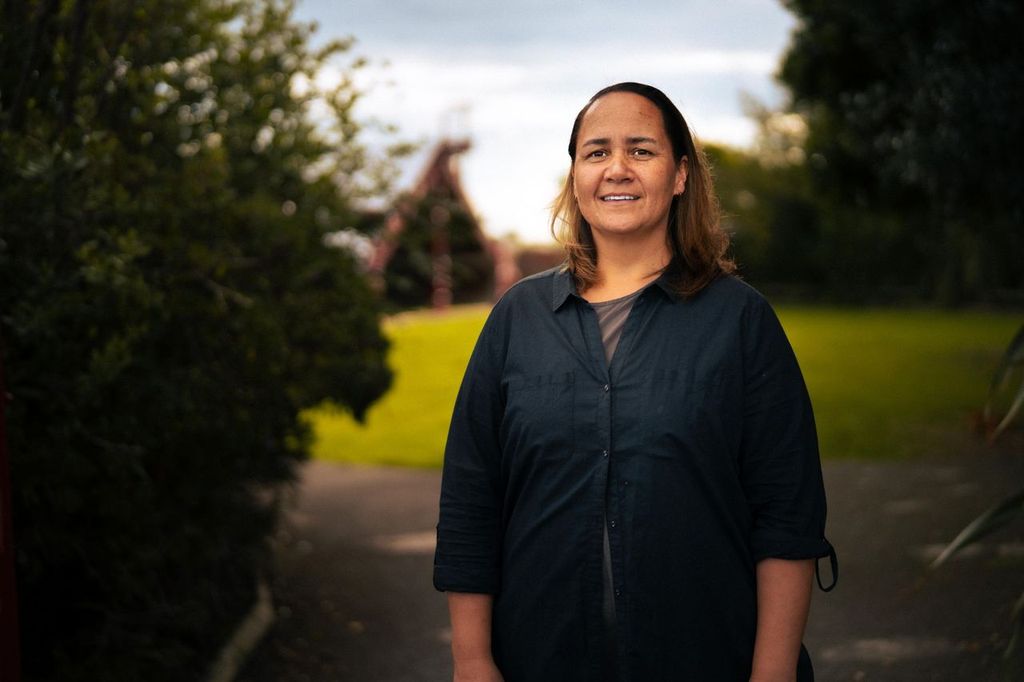
By Moana Ellis, Local Democracy Reporting
An iwi health leader says new Government plans will strip power from iwi to shape decisions on Māori health priorities.
The co-chair of a health board representing iwi from Taumarunui to Whanganui said changes planned to Pae Ora would erase an independent health monitor role, removing crucial Māori oversight of the public health system.
Te Mātuku co-chair Te Aroha McDonnell said Health Minister Simeon Brown’s amendments to the Pae Ora (Healthy Futures) Act would undermine Māori rights to partnership and contradict equity promises.
“It’s another political decision that prioritises control over collaboration.”
The Minister announced plans on 14 June to scale back the authority of Iwi Māori Partnership Boards (IMPBs) over funding and service design, and remove their direct role in influencing local health services.
McDonnell said the changes would reduce iwi ability to hold the Crown to account for how well it addresses longstanding health inequities.
“It’s not an isolated change in policy – it’s part of a broader pattern of systematic rollbacks.”
McDonnell said the changes undermined the rights of Māori to health equity and the principles of partnership, participation and protection enshrined in Te Tiriti o Waitangi.
‘My concern is addressing the disparities between Māori and non-Māori – our people die seven years earlier.’
“Te Mātuku’s ability to hold the Crown accountable to its obligations is reduced,” McDonnell said.
“My concern is addressing the disparities between Māori and non-Māori – our people die seven years earlier than non-Māori.
“The Government constantly states that they are committed to equity in health, but disestablishing the monitoring role of Te Mātuku contradicts that, especially when Māori continue to experience systemic health inequities.
“Having that independent monitor is what is needed right now.”

Pae Ora was used in 2022 to disestablish the District Health Boards and create Health New Zealand and the now abandoned Māori Health Authority.
IMPBs are regional, Māori-led governance bodies created in 2022 under the previous Government to support the health sector to meet the needs of their communities and ensure Māori participation in health decisions.
There are 15 IMPBs around the country.
Under the previous Health Minister Shane Reti, they were tasked with a strategic commissioning role in the reformed public health system and with providing direct advice to Health New Zealand.
The work included assessing the health needs of Māori within their region, setting priorities, designing and signing off on local health plans and providing iwi oversight in monitoring how well the public health system serves Māori populations.
McDonnell said those functions would now lie with Te Whatu Ora/Health New Zealand, supported by a newly enhanced Hauora Māori Advisory Committee.
The Committee, which is created by ministerial appointment, would provide direct advice to the minister and Health New Zealand board.
The changes would relegate IMPBs to community engagement and supporting the implementation of local solutions.
Focused on delivery
The Minister said the amended legislation would improve health outcomes by making sure the system was focused on delivery.
“That means better care for patients through a more connected, transparent and effective health system.”
Te Mātuku is made up of representatives from 11 iwi stretching from Ngaa Rauru Kiitahi to Ngā Wairiki-Ngāti Apa, and from Ngāti Hāua to Tūpoho.
In March, it released its inaugural strategic plan outlining priorities for the next five years to advance the health and wellbeing of Māori communities within the Te Ranga Tupua region, which takes in Whanganui, Rangitīkei, Ruapehu, and South Taranaki.
The priorities were based on data and evidence collected by Hauora Māori collectives, and known Māori need.
“We identified the priorities and where and how much funding should go to specific services.”
McDonnell did not expect the changes would affect resourcing for Te Mātuku.
“The operational arm is already lean. We intentionally did that to ensure that we could be independent and continue to work toward improved Māori health outcomes in our communities.”
Te Mātuku would continue to advocate for better Māori health, McDonnell said.
“We will continue to ensure that the Government understands the priorities of our whānau and iwi. We will continue to push for tino rangatiratanga, mana motuhake and kotahitanga.”
Awa FM – Te Reo Irirangi o Whanganui
For more of our people, our stories, our way, click News or follow us on Facebook.
